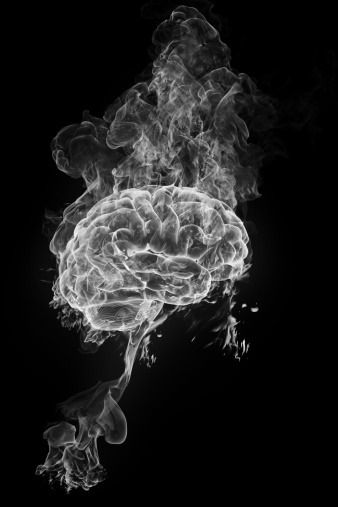Slide 1 of 4: Introduction
Authors: Ronald J. Comer, Princeton University and Jonathan S. Comer, Florida International University

Press the Next button to start this activity
Slide 2 of 4: 42.1 How the Brain Responds to Marijuana
This video demonstrates how the brain reacts to marijuana and demonstrates the brain’s reward circuit, which is activated by marijuana use. In the video, you will see a detailed animation demonstrating the way neurotransmitters carry signals to the brain’s synapses, and how marijuana use can affect these signals, causing the user’s “high.” The video also describes some of the negative consequences of marijuana use on the brain.
- Chapters
- descriptions off, selected
- captions settings, opens captions settings dialog
- captions off, selected
This is a modal window.
Beginning of dialog window. Escape will cancel and close the window.
End of dialog window.
This is a modal window. This modal can be closed by pressing the Escape key or activating the close button.
This is a modal window.
How the Brain Responds to Marijuana
[MUSIC PLAYING]
NARRATOR: Dopamine transporters in the presynaptic neuron are not the only things that control how much dopamine is released or how often. Other nearby neurons also play important roles in regulating neural signals.
For example, an inhibitory neuron near the dopamine presynaptic cell can reduce the amount of dopamine delivered to the synapse by releasing the neurotransmitter, GABA. Inhibitory GABA signals change in response to local brain activity, adjusting the amount of dopamine released by stimulated dopamine neurons.
Endocannabinoids are neurotransmitters that can indirectly affect dopamine signals by modifying the activity of other neurotransmitters, such as GABA. Endocannabinoids, like dopamine, bind to specific receptor proteins located on the surface of some cells. Depending on its current level of activity, the presynaptic dopamine neuron can produce endocannabinoid molecules.
These molecules bind to cannabinoid receptors on the adjacent GABA neuron, reducing the amount of GABA it releases. Inhibiting GABA neurons in this way boosts the dopamine signal in the reward synapse. Endocannabinoid and other mechanisms that regulate dopamine activity help the brain develop, learn, adapt, and navigate a complex world.
Endocannabinoids are molecules that closely resemble the main chemical in the cannabis plant, delta-9 tetrahydrocannabinol or THC. Because THC is so similar to the brain's own endocannabinoids, such as anandamide or 2-AG, smoking marijuana directly affects the brain of the user.
When someone smokes marijuana, THC molecules quickly reach the brain. There, THC competes with the brain's endocannabinoids to bind with cannabinoid receptors on neurons that regulate dopamine activity. Among other effects, THC reduces the release of GABA in the striatum.
This reduction in turn causes nearby dopamine neurons to release more dopamine. Increased dopamine release produces the positive feelings or the marijuana high.
Marijuana use can have far reaching consequences in the user's brain. THC can activate cannabinoid receptors found throughout the brain, altering healthy communication within the brain and with the rest of the body. This can affect emotions, movement, learning, memory, and decision making.
Using marijuana frequently, especially during adolescence, overstimulates the reward system and can change the brain's actual wiring. Such use can lead to addiction and other mental illnesses and even lower a person's IQ.
[MUSIC PLAYING]
Slide 3 of 4: 42.2 Check Your Understanding
Instructions:
Answer the questions based on the video and your reading of the entire chapter.
Slide 4 of 4: 42.3 Activity Completed!
Activity results are being submitted...